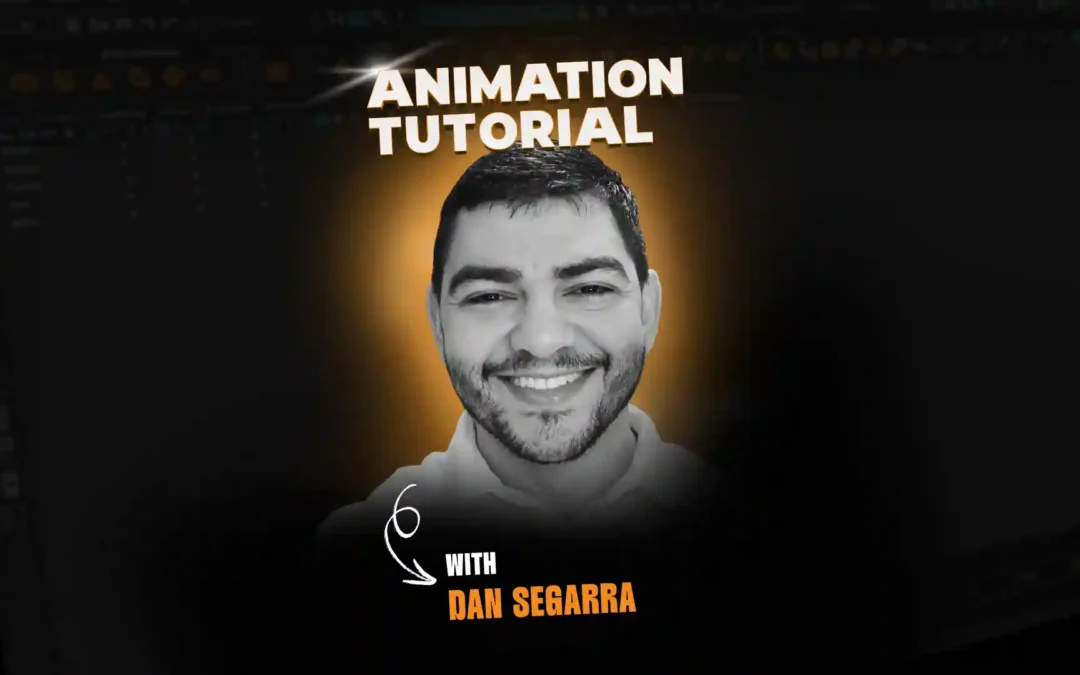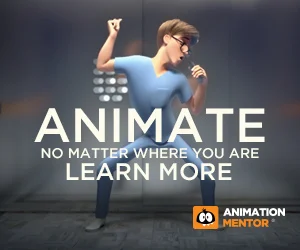
Sometimes putting work out there can be intimidating, but it is the best and fastest way to improve! One thing you might not think to do is to learn HOW to take feedback as an animator—even though it’s actually a really important skill. Your ability to accept feedback on your work can affect your mood, you work itself, and even your overall animation career, so learn how to do it right!
Getting extra eyes and receiving feedback on your work is an extremely important, but also an overlooked step in the animation process by many students. Someone who isn’t as close to the shot can pinpoint areas which aren’t as clear as they should be, or offer suggestions which can add entertainment value and appeal. No one should animate in a bubble. Sometimes putting work out there can be intimidating, but it is the best and fastest way to improve.
Of course not all feedback has to be implemented into your shots, and you have to consider who is giving the notes. If it is a Director, Lead, Supervisor, or Mentor here at Animation Mentor, then receive the notes and hit them. People in these roles know the scope of the project and how your shot(s) fit into the big picture. Usually they understand the best way to streamline the process and get the most out of you within the time that you have.
You have to separate the critique of your work and remember it’s not a critique of you as a person. Try to take it all in stride and know that getting outside opinions will help you grow as an animator.
Now, that’s not to say other students and peers don’t have great ideas too, but what I’m saying is you don’t necessarily have to hit peer feedback if you don’t want to. I see many students regularly give the: “You know what would be cool” critique. This is the fastest way to derail your shot. Sometimes the biggest, wackiest ideas don’t fit into the intention of the assignment. It’s these times you have to decide whether or not the advice you’re getting will help your shot progress, or will it add so much complexity that you’ll never finish it. Seek out those people who produce work you enjoy or feel is really strong, put yourself out there and see what they have to say.

Use your time getting feedback as an opportunity to discuss the notes if needed. Do not just “Yes” the Supervisor, Director etc. to death if deep down you have questions about the feedback you’re receiving. I’ve never seen anyone get upset at an animator who is trying to gain clarity on the notes being given. However, please keep in mind there’s a difference between gaining clarity and fighting the note.
Ask insightful questions to support or expand on the ideas presented, but never fight back against the creative supervisor. I think presenting initial options can be helpful, and will show your creativity, but be careful to not push back when a decision is made.
When giving notes here at AM, I welcome discussion as it helps the student understand why a particular note is being given and hopefully that will help him or her make stronger choices in the future. In a studio environment, do not shut yourself away and try to show them you can do it alone. Get up and get feedback before showing your Supes and Leads. Your work will look better to those in charge and therefore reflect better on you.
I’ve never seen anyone get upset at an animator who is trying to gain clarity on the notes being given. But there’s a difference between gaining clarity and fighting the note.
Something that is important to keep in mind is that Animation, like any art form, is very personal. We put a lot of ourselves into our work and many times our acting choices and mannerisms show up in the performances, causing us to become very protective of it.
Always remember that receiving feedback is never a personal attack. You have to separate the critique of your work and remember it’s not a critique of you as a person. Try to take it all in stride and know that getting outside opinions will help you grow as an animator.
There will be times when the notes you receive feel insurmountable. You may feel the tightening anxiety of realizing you have so much to do in such little time. Breathe. It’ll be OK. We’ve all been there.
Make a list to prioritize the notes and work your way through them. Ask yourself, “What will make the most difference?” “What can wait?” For me, making a list gives me a visual checklist to work off of. As I work through them, checking things off of a list helps me see the progress I’m making, and the anxiety goes away. By learning how to do this effectively you’ll save yourself a lot of stress.
Remember – Getting feedback from others is essential to growth as an animator. Make it part of your workflow.
Here are some other posts you might like!
Life After Graduation: When You Don’t get a Job Right Away
A Guide to Demo Reel Reviews at Animation Conventions
What NOT to Do as a New Animator
5 Things Not to Do on Your Demo Reel
How to Set Animation Goals and Follow Through

Want to learn animation from pros like Elliott?
Start your animation journey by learning with professional animators from a variety of studios and career paths! Get more information about Animation Mentor’s Character Animation Courses.



